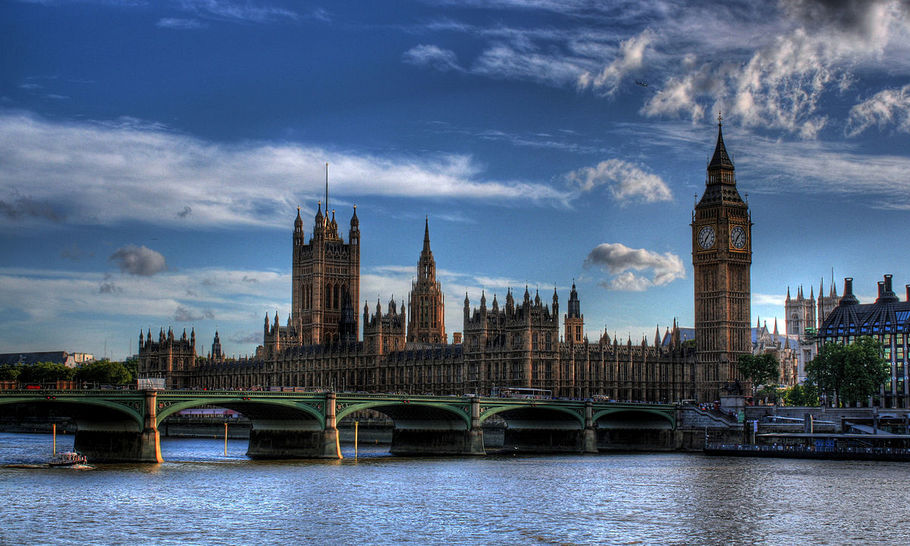The Labour split shows British democracy is alive and well

After two years of grinding political failure, there is change. A press conference was called and seven Labour MPs resigned to form a new independent group. They all had serious points to make. The mood was sombre. But that couldn’t disguise the simple fact—this was the best thing to have happened in British politics for years.
Luciana Berger, the MP for Liverpool Wavertree spoke first. Berger, who is Jewish and has recently faced deselection, spoke with startling frankness: “I cannot remain in a party that I have today come to the sickening conclusion is institutionally anti-Semitic,” she said.
It went on. Chris Leslie, MP for Nottingham East said Labour had been “hijacked by the machine politics of the hard left.” Angela Smith, MP for Penistone and Stockbridge: “Most people are like my family. They do not want to be patronised by left-wing intellectuals who think that being poor and working class constitutes a state of grace.”
The others were Gavin Shuker, Ann Coffey, Chuka Umunna and Mike Gapes, who remarked: “I am furious that the Labour leadership is complicit in facilitating Brexit, which will cause great economic, social and political damage to our country.”
“Jeremy Corbyn, and those around him,” Gapes continued, “are on the wrong side on so many international issues, from Russia to Syria to Venezuela. A Corbyn Labour government would threaten our national security, and international alliances.”
All the MPs were clearly in a state of anguish. In a statement released after the news broke Tom Watson, Labour’s deputy leader, also looked glum. But despite the long faces, and the icy spite of the leftist Twittersphere, this split in the Labour party is very good news indeed.
They are utterly rigid. Once they get an idea in them, there’s no getting it out again.
Corbyn hasn’t changed his political views in 40 years. He came up in the Marx-Militant-and-corduroy period of the 1980s, when the left seethed with hatred for “the west”, for capital, and for all the competitive and acquisitive appetites that go with private enterprise. The flip-side was an instinctive reverence for the public sector, for workers and for any government opposed to “the west.”
The collapse of the Soviet Union, and more recently of the Venezuelan dream—a failure that so antagonises modern leftists—gave Corbyn no cause for reflection. The market economy’s success in lifting hundreds of millions of people in China, south east Asia, India, sub-Saharan Africa and South America out of subsistence poverty has had no effect on him either. No. Corbyn has stuck to his ideas like a limpet to a rock.
May is just as bad. Anyone who could enter a general election campaign with a twenty-point lead and cut it to zero in a matter of weeks, as she did, is blessed with a unique cack-handedness. That failure was down to her sheer bloody-mindedness. May shut out her party and relied instead on two political advisors, whose advice turned out to be stunningly bad. That blinkered approach, and the robotic adherence to ludicrous soundbites, did for her majority.
And then there’s Brexit. What a masterclass in unyielding pig-headedness it has been. There has never, not once, been even the slightest suggestion that May is interested in any sort of compromise—with the EU. With her own party. With Parliament. With pubic opinion. And just look at the disaster it has brought.
The lesson, and it is not a new one, is that flexibility—the possibility of political movement—is vital for democracy. If you don’t have it, compromise becomes impossible and if you don’t have compromise, then nothing can be done. The country can’t move. It becomes stuck.
It’s a remarkable coincidence that two political leaders have come around at the same time, both with the same, profound political blinkeredness, brittleness and resistance to change. Our present era of political disaster is May and Corbyn’s joint creation, and flows directly from their extreme mental rigidity.
The resignation of the Labour seven is a direct response to this rigidity and a reminder that in a democracy, politics cannot be brought to a kind of halt. For an example of what that looks like, see North Korea.
Lacking any constructive political abilities, May and Corbyn have instead tried to suck the air out of British politics. And as the resignation of those seven Labour MPs reminds us, democracy abhors a vacuum—thank God.





